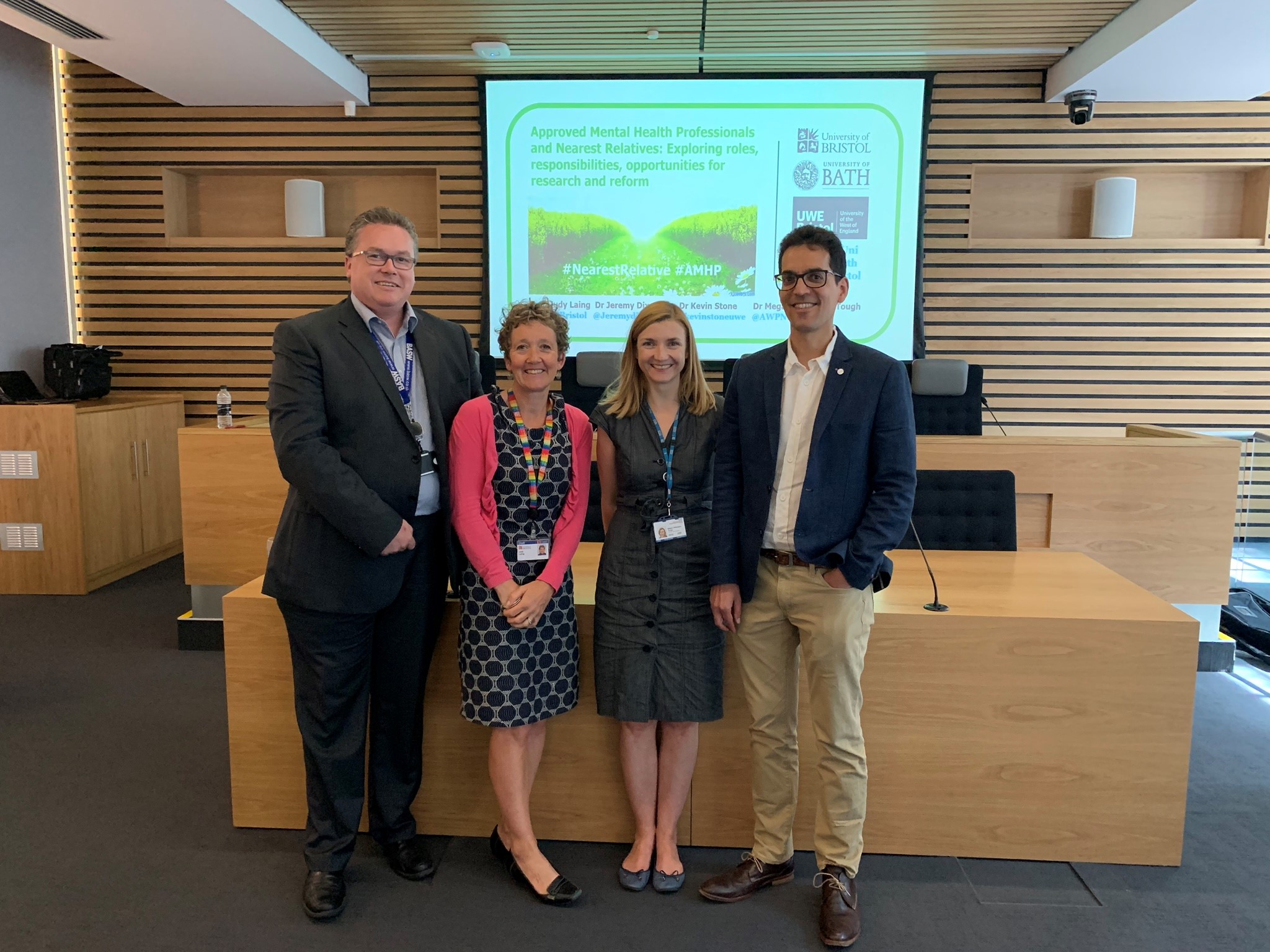The research team presented the findings of an empirical study conducted in the South West in 2017-18, looking at the experiences of Approved Mental Health Professionals (AMHPs) and Nearest Relatives (NRs) of the compulsory admission process in the Mental Health Act 2007 (MHA).
The event, sponsored by the University of Bristol Law School, was attended by local social work and legal professionals, as well as researchers and carers from the region.
Professor Judy Laing (Co-Director of the Centre for Health, Law, and Society) opened the workshop by providing an overview of the relevant legal frameworks with a focus on current problems and proposals for reform. A recent Independent Review of the Mental Health Act has made some concrete recommendations about the need to review and modernise the Nearest Relative provisions in the Mental Health Act, and replace it with a Nominated Person. The government has recently undertaken to take forward this proposal in a new Mental Health Bill.
Judy explored how the new provisions might work, and identified some of the benefits and challenges with this new approach. Some of the issues raised in her paper have already been published by the research team in the Journal of Social Welfare and Family Law in 2018: ‘The nearest relative in the Mental Health Act 2007: still an illusionary and inconsistent safeguard?’
This was followed by a paper from Dr Jeremy Dixon, (Department of Social and Policy Sciences, University of Bath) and Dr Megan Wilkinson-Tough (Clinical Psychologist, Avon & Wiltshire Mental Health Partnership NHS Trust, Bristol & Department of Psychology, University of Bath) entitled: 'Treading a tightrope: AMHP perspectives on balancing the rights of patients and nearest relatives under the Mental Health Act'.
They presented some of the findings of the first phase of the research project, which involved online questionnaires and focus group discussions with AMHPs about their practice and experiences of working with Nearest Relatives under the MHA. Key themes identified are the difficulties of balancing patient confidentiality and sharing information with relatives, as well as the challenges of how and when to identify a suitable nearest relative. Many of these challenges have also been identified by the Independent Review of the MHA in its final report, and formed the basis of the proposals to reform the law.
The third paper was presented by Dr Kevin Stone (Department of Law /Department of Health and Social Sciences, University of the West of England) who discussed the findings of the second strand of the research, focusing on ‘The 'burden' of Mental Health Act assessment and admission' for AMHPs and Nearest Relatives. It is clear from this in-depth qualitative research with Nearest Relatives that the additional responsibilities of this statutory role are a huge emotional burden, and there is a need to consider how family members/carers can be better supported to take on this difficult and important safeguarding role.
The workshop concluded with small group discussions to revisit some of the themes that emerged from the research papers, and to consider the reform proposals and potential for further research, engagement and collaboration with the range of stakeholders who participated in the workshop.
